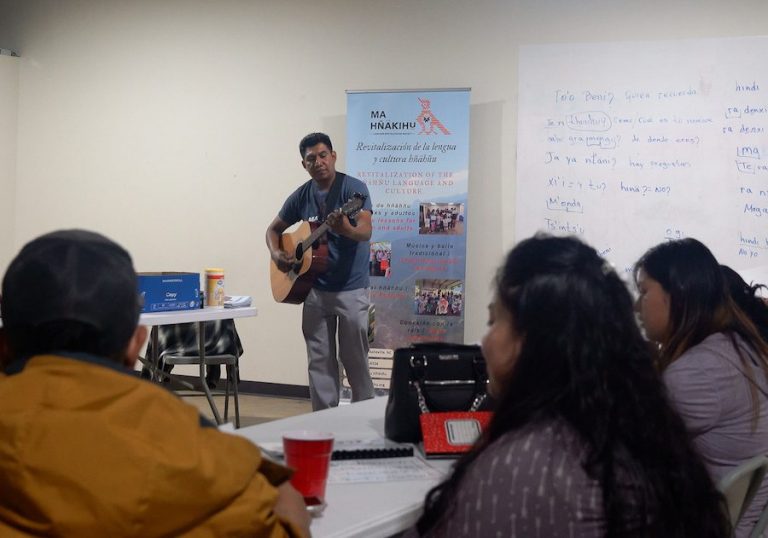In North Carolina, Immigrants Resist The US ‘Language Graveyard’
On a Friday evening in Emma, North Carolina, an unincorporated community west of Asheville, noise echoes across the Porvenir Community Center. Young children play in one room, laughing and shouting in Spanish and English. In the next room over, around 15 adults and children talk and sing in a different language – Hñähñu, an Indigenous language from the Mezquital Valley of Central Mexico.
Families sit together, leaning over textbooks and taking notes as the teacher, Abel González Bueno, writes example sentences on the whiteboard. At the end of the class, González leads his students in a traditional folk song. He says that music can be a great teacher, especially for his adult students who grew up speaking Hñähñu.








